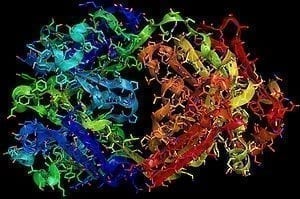The future of medicine is contained in “The Four P’s”: Personalised, Predictive, Preventative, and Participatory. Aaron Ciechanover, speaking on a panel on the future of biomedicine at the Lindau meeting, explains: “We may have the ability to profile patients before they get sick, therefore we may have the ability to predict diseases – and also ‘preventative’ because if it’s predictive we can also point out the risks. It is also going to be participatory because decisions are going to be made together with the patient.”
What kind of technologies will create personalised care, then? There are a few different options put forward by the all-Nobel laureate panel, which includes Peter Agre, Ferid Murad and Martin Evans, as well as Ciechanover. They say the future of medicine will include: Advances in cellular-based therapies, genome-based tailored treatments, and antibody therapies.
“We are not satisfied with current medicine,” says Ciechanover. He thinks it’s too general and not targeted enough. In breast cancer, for instance, the drug Herceptin, which is an antibody, works for people who are HER2 positive. If the mutant is negative, it won’t work.
Evans says that the new thing in cellular-based therapies will be using pluripotent cells to treat specific cells. These can be cultured in the lab and selected as they develop into a wide variety of cell types for repairs. “This opens up regenerative medicine,” he says. For example, people with burns or open wounds can be treated with a spray of their own cells disaggregated into a suspension. “The site they have to grow, is the best site to grow them”, Evans asserts. Or you can grow more skin in culture to transplant. This is an alternative to traditional grafts.
Celular therapies also open the way for bone marrow transplantation using the patient’s own cells that have been purified in the lab. In this way, cells can be a kind of pharmacology and the possibility to personalise medicine. “cell transplantation therapies need to be personalised,” says Evans.
Related articles
- The future of medicine: we’re decades away from the huge advances (arstechnica.com)
- New technique advances bioprinting of cells (physorg.com)










